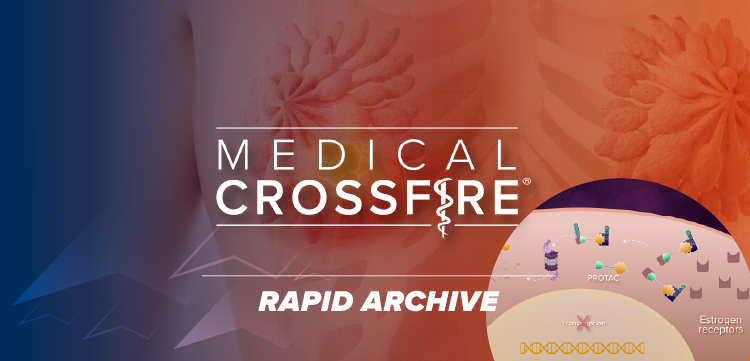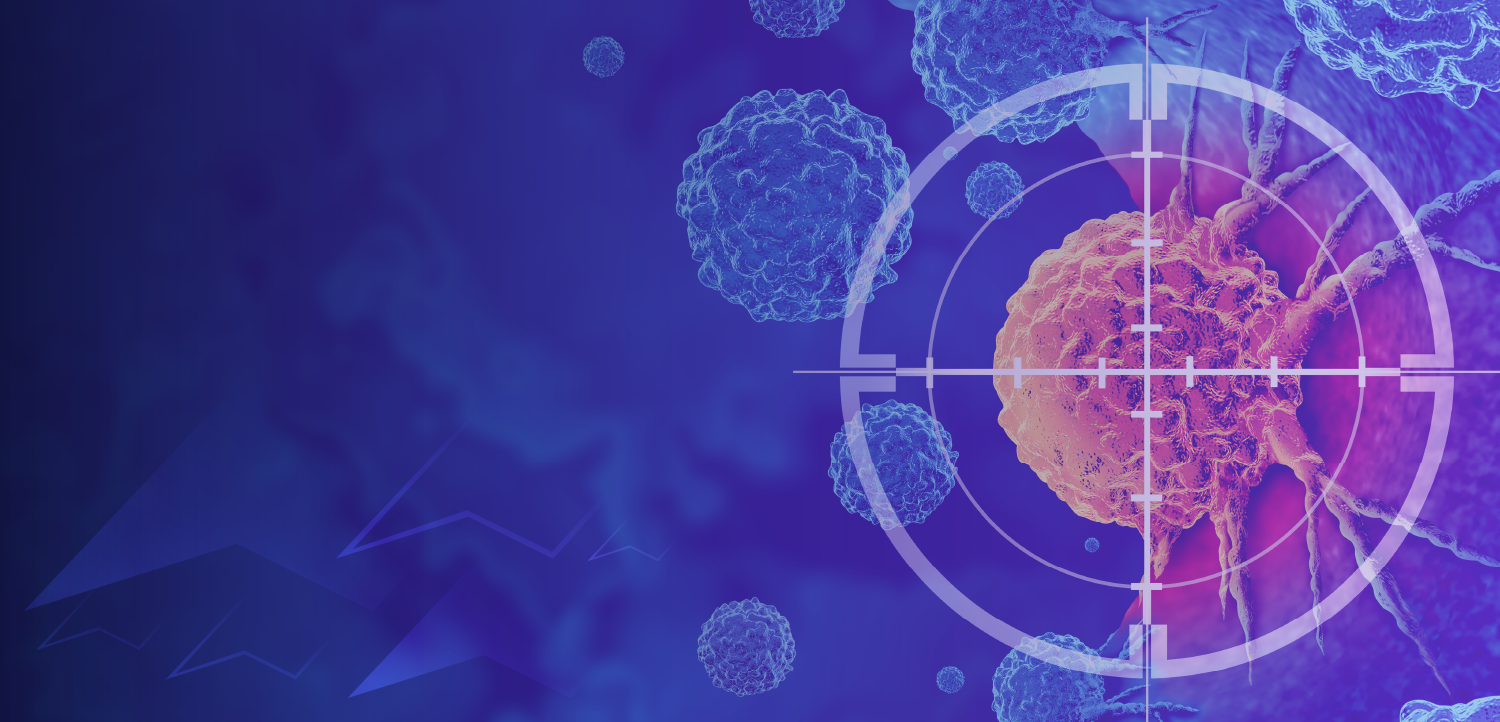
LP-184 May Expand Options for Pancreatic Cancers With DDR Defects
In an interview with Targeted Oncology, Igor Astsaturov, MD, PhD, discussed what led to the development of LP-184 and explained how the agent will be evaluated moving forward.
LP-184, a novel drug with a unique mechanism targeting prostaglandin reductase 1 (PTGR1) and DNA repair pathways, represents a vital step in expanding treatment options for patients with advanced cancers, including pancreatic cancer, according to Igor Astsaturov, MD, PhD.1,2
LP-184 is a novel, synthetically lethal, small molecule being developed for the treatment of multiple advanced solid tumors and central nervous system (CNS) cancers. The agent is being developed using insights from Lantern Pharma Inc’s AI platform, RADR.
A first-in-human, phase 1A trial was recently cleared to proceed by the FDA to evaluate LP-184 across various tumor types.1 The study, which is using a Bayesian design, aims to evaluate the safety and tolerability of escalating doses of LP-184 to determine the maximum tolerated dose in patients with advanced pancreatic cancer, recurrent high-grade gliomas/glioblastoma, metastatic brain and CNS cancers, and other solid tumors that have DNA damage response (DDR) deficiencies.
The completion of phase 1A is expected by mid-2024, and these findings will guide further testing of the efficacy of LP-184 in phases 2 and 3.
In an interview with Targeted OncologyTM, Astsaturov, associate professor in the Department of Hematology/Oncology and co-director of the Marvin and Concetta Greenberg Pancreatic Cancer Institute at Fox Chase Cancer Center, discussed what led to the development of LP-184 and explained how the agent will be evaluated moving forward.
Targeted Oncology: Can you discuss the background of LP-184?
Astsaturov: This came about, probably about 3 years ago, when a company, Lantern Pharma, Inc., approached us at Fox Chase, proposing collaboration to develop this new drug that they've been working on in their laboratories. The history goes back to almost 2 decades ago. Lantern has developed these artificial intelligence algorithms to figure out the vulnerabilities of cancers, working with cancer cell line models primarily. They found that there's some unique association of certain classes of agents, [which] have been previously tried, but showed sporadic activities in a few cases, and the majority of tumors did not respond. Once they applied genomic data, they figured [out] that there is a rather unusual association with the expression of 1 particular single enzyme called prostaglandin reductase.
They published those results in 1 of their posters, and they were looking at the possibilities of developing this drug for a very specific subset of cancers that have high levels of PTGR1 expression, as well as mutations in DNA repair pathways. This is how the whole collaboration started. We at that time had a collection of human pancreatic tumor models, cell lines, and other investigative tools that were highly complementary to that task. This is how we began our collaboration, which ultimately, 3 years later culminated in a joint manuscript that was published in Molecular Cancer Therapeutics in late August this year. Also, that led to opening a clinical trial at cancer centers across the country and also at Fox Chase Cancer Center. This is quite exciting for us to have this collaboration that went all the way from basic mechanism discovery, to preclinical testing, and ultimately to a phase 1 clinical trial.
Can you further discuss PTGR1?
One interesting observation about PTGR1 is that this is a sort of obscure enzyme that plays a role in prostaglandin metabolism. Prostaglandin is 1 of the lipids that we carry in our bodies in regulating inflammation and other functions of the membranes in cells. The drug itself is not active until it is converted enzymatically to its active alkylating agent metabolite, which is very short-lived. The half life of LP-184 itself is measured in minutes once it is injected. The reason for that is once it reaches the target tissues and organs, it rapidly gets metabolized to chemotherapy drugs that damage DNA. That causes cell death in cancer cells that are more susceptible to the defect. We believe that we have a hard biomarker, so tumors that do not upregulate or have high-level of expression of PD-L1 will be particularly sensitive.
We tested that in both cell lines and in vivo xenograft tumor models, when we remove this enzyme through genetic manipulations, the drug loses completely any efficacy. That's sort of a unique mechanism of action. We also think that oxidative stress, hypoxia, may predispose tumors to higher levels of expression of this PTGR1. Both RNA and protein levels of PTGR1 are strongly correlating with the drug efficacy in either in vitro models or in vivo. This is something that we are looking forward to in real-world human testing.
What are the methods and design of this phase 1 study?
When we take a new drug to clinical testing, we have to be careful in terms of what dose can be tolerated, so it usually starts with phase 1, which is essentially to determine the drugs safety and tolerability, how much can be given, what are the potential [adverse] effects and toxicities. From prior experiences with other cancer trials of these classes of drugs, there are some known toxicities which we are aware of, and it has to go through a slow process of gradual dose-escalation. This is what the idea is.
We also applied a rather smart design, which is called the Bayesian design. Essentially, it's a way to move progressively and faster into higher, more effective doses of the chemotherapy agent while selecting patients who are more likely to be deriving some benefit. We will be looking for patients who have mutations in their cancers in the DNA repair pathway. We will also be retrospectively correlating the responses or any clinical effects with the expression of this rather unique enzyme called PTGR1, prostaglandin reductase. These are fundamental observations that will hopefully help us to develop this drug fully when it goes through a more advanced phase of testing, like phase 2 and phase 3, subsequently.
What does the eligibility criteria of this study entail?
The patients who are entering the study will be patients with solid tumors. We will obviously be seeking a greater participation from patients with pancreatic cancer because there is a relatively high incidence of DNA repair pathway mutations, probably in about 10 to 15% of all the patients with pancreatic cancer. We typically take patients who have incurable metastatic solid malignancies. We will be quite interested in testing the drug in patients with tumors that have these genetic pathway mutations. This is a phase 1 trial where the first cohort of patients will be given small doses, but those would gradually escalate to the point where we start seeing some potential [adverse] effects. This is where we determine which level is safe and tolerated by the patients.
With phase 1a supposed to be completed in the first half of 2024, what do you anticipate these findings will show and what will the next steps be?
We established an enthusiastic team of cancer centers, which includes a number of stellar academic institutions in Texas, in Fox Chase, [which is] in Pennsylvania, [and more]. So across the country, we will be looking for patients who are with specific genetic characteristics of their cancers. I'm confident that we will be able to meet the stated timelines and goals to move quickly through phase 1, and then be prepared for more advanced phase testing of the drug efficacy.
What is the continued importance of studying these new and novel agents?
Why it is important is because we believe that any new chemotherapy drug that hits on that particular pathway will expand the number of options that are currently available to patients, not only pancreatic cancer, but [with] many other incurable carcinomas. This is an area of an urgent need. Many patients respond transiently to chemotherapies and their tumors acquire resistance. The more options we can offer, the better and longer they will live. From that point of view, we believe this is the area of unmet clinical need. Hopefully, if we can develop this drug and demonstrate its efficacy, that will serve for our patients to have a little bit longer and better lives.















































